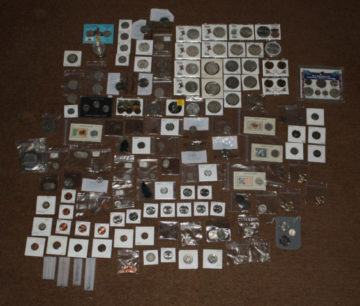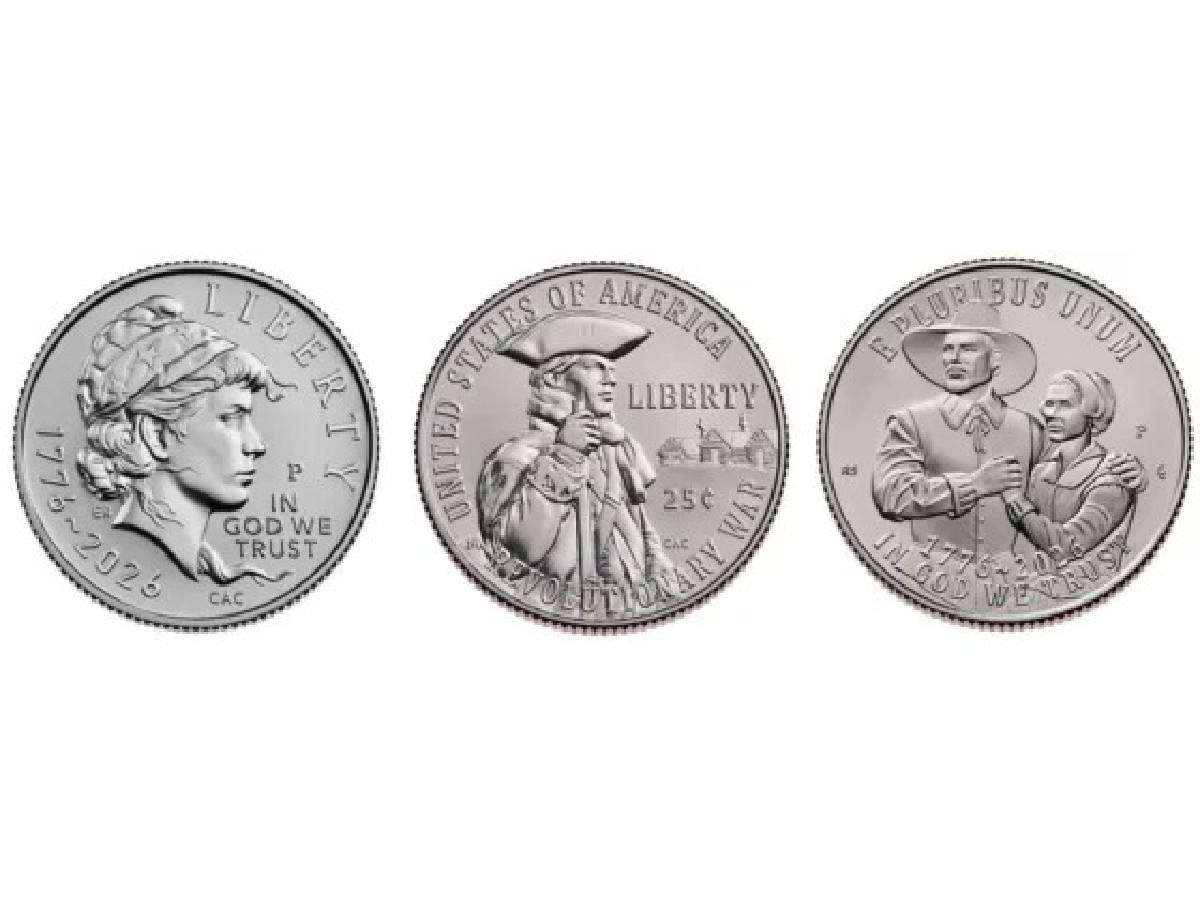Handling an estate coin collection can be one of the most difficult things you’ll ever have to do.

However, being responsible for securing the sale or disbursal of a large coin collection doesn’t have to be hard.
While I’m not a lawyer and have no training in legal issues, I’m a longtime coin collector and would like to offer you some tips that you may find helpful if you’re in a situation where you’re having to handle issues surrounding an estate coin collection.
The advice I offer assumes you have already taken into consideration any directives or wills, have little to no experience with coins, and you are simply seeking tips for looking through a large coin collection and possibly selling some (or all) of them.
How To Go Through Old Estate Coins
Estate coin collections don’t have to be big — though they often are.
The term estate coin collection simply means a collection of coins belonging within an estate.
However, because handling an estate can, in and of itself, be arduous, having to deal with matters of a coin collection in an estate can make the whole matter all the more complicated. After all, many coin collections are made up of coins that can be individually worth hundreds — even thousands — of dollars!
An estate coin collection put together over the many decades of an avid coin collector’s life can mean the accumulation of seemingly countless coins, each having potentially great value.
How should you handle those coins?
Tip #1: Look it up.
Before setting aside time to go through and catalog or evaluate each coin, it’s really important that you pick up a book that will help you understand what each of the coins in the coin collection is worth.
Two of the best books I can suggest for you to buy are good reference guides that provide great, detailed information but aren’t be too over the top if you’re not familiar with coins:
- If you’re handling mainly United States coins, be sure to check out A Guide Book of United States Coins.
- If you have to go through foreign coins or a mix of different types of coins, look for The Standard Catalog of World Coins.
Tip #2: Don’t clean any of the coins!
You probably think cleaning coins makes them look better and, you might, thus assume, worth more. While you might wash a car before you sell it, you do not want to clean your coins.
The natural patina on all those coins is highly valued by coin collectors and shouldn’t be altered in any way. When you clean coins, you permanently alter their original surfaces — which are often an extremely scarce attribute, especially on older coins.
You’ll always get more money for uncleaned, unaltered coins than those that have been cleaned or ‘improved.’ Trust me. Don’t touch those coins for any other reason but to inspect them!
Tip #3: Divide and conquer.
It’s time to start seeing what you have. If you already have directions set in place, be sure you organize and distribute according to what you have been directed to do.
If, however, you have a ton of coins laying around and have no orders and you don’t know what’s valuable and what’s not, I have some general guidelines for you.
Keep all of these:
- Pennies made before 1959 (these include wheat pennies, Indian pennies, and several rare dates)
- Nickels made before 1955 (these include Buffalo nickels, Liberty nickels, and several scarce dates)
- Dimes made before 1965 (these are silver dimes and include Mercury dimes)
- Quarters made before 1965 (these are silver and include several scarce dates of Washington quarters as well as older designs)
- Half dollars made before 1971 (these are silver)
- Silver dollars made before 1936 (these are silver and include several scarce dates)
- Already assembled albums, folders, packages, or sets of coins
- All gold and silver coins
- Any coins in holders or those already identified
If you’re having to go through jars, boxes, or bins of coins and none of them within fall into the categories of coins listed above, there’s a pretty safe bet that what you have found is not so much a coin collection, per se, but simply a hoard of spare change kept without regard to date or condition.
Certainly the possibility exists that error coins may be found within. But generally, jars or hoards of common pocket change are common in estates. They often have no more value than the face value of the coins themselves.
Tip #4: Safely protect and store all of the coins.
Coins found in estates are often stored using one of two possible coin storage extremes:
- Either all the coins are neatly and properly kept in good coin storage
- Or the coins are poorly stored and uncatalogued
Of course, the coin collection you’re handling may have be kept using a combination of the above methods.
At any rate, there’s a good chance you’re going to need to at the very least partly modify the storage of the coins you’re going through for transport to a selling location or disbursal.
Whatever you do, be sure to follow all guidelines set forth in directives. If directions include the coin (or coins) not being removed from their present storage method, then by all means abide. However, if there are no such directives in place and you need an efficient and safe way to keep the coins you’re going through, here are some ideas:
- Use inert plastic coin tubes to store large quantities of coins of similar denomination
- Purchase coin folders or coin albums for organizing runs of coins of the same designs
- Put presently unpackaged rare or valuable coins into individual air-tite coin holders
- Mylar coin flips and 2×2 coin holders are other great, cheap ways to store loose coins in individual holders
- Make use of a coin storage box to organize all coins that are in 2x2s and mylar flips
Tip #5: Sell the old estate coins.
So long as there are no directions as to where coins in the estate must go and everybody involved decides that the coins left behind should be sold, then it’s time to sell the coins (assuming that’s what is agreed upon).
The 3 best (most profitable) ways to sell coins are:
- Selling coins to a coin dealer.
- Using an auction service to sell the coins for you.
- Listing the coins on eBay.
While auction houses are a good way to sell expensive coins or very large coin collections, coin dealers are often a more convenient way to sell coin — especially if the material you’re handling isn’t necessarily very expensive. There are many well established coin dealers who are well-accustomed to handling very rare and expensive coins.
eBay is another method employed by those selling coins today — because eBay is an online auction website that grants you the advantage of placing your coins in front of, potentially, millions of bidders who will compete to pay the highest price for your coins.
One big issue with eBay, however, is that listing fees can erode a significant (10% or more) amount of the final selling price. Also, you must be sure to package the coins safely, be prepared to communicate with buyers, and ship the sold coins promptly and to the correct winners.
However, if the only thing that makes you nervous about listing the coins on eBay is the issue of fees, remember that traditional auction houses also impose fees.
In the same sense, you must remember that selling coins to a coin dealer means getting less than the retail value of your coins. Coin dealers, after all, have to cover expenses and make a profit — so they will likely offer somewhere between 50% to 75% of the values you see listed in most coin price guides.
This video has even more great tips:




